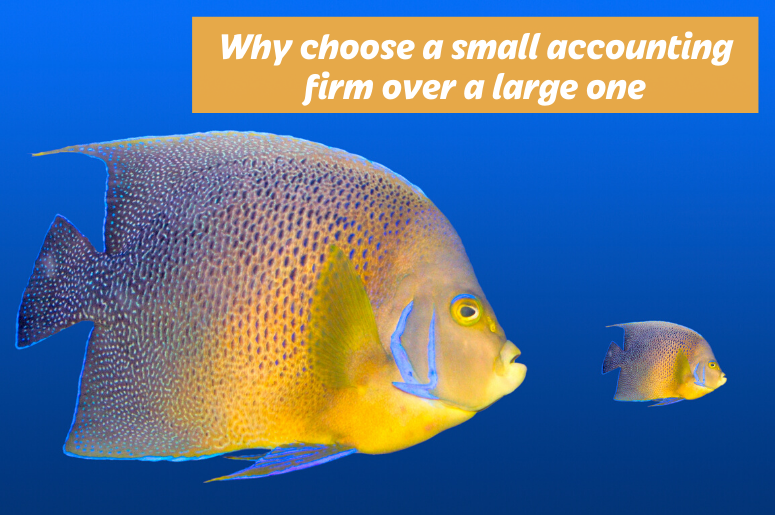Why choose a small accounting firm over a large firm?

1. Genuine relationships and insight into your business
For smaller accounting firms, every relationship counts.
They have fewer clients so each business owner is more important to them in terms of generating revenue and profits.
However, that doesn't mean that you’re just a dollar sign.
Small firms have more time to spend with each client. This allows them to build genuine, longer-lasting relationships.
They can get to know your business inside out and address your specific needs rather than applying one-size-fits-all solutions.
As a result, you will usually find that small accounting firms truly care about the success of your business.
2. Flexibility with pricing and policies
Small firms can usually afford to be more flexible with their clients.
While big firms will often apply the same pricing, policies, and practices across their entire client base, a small firm can tailor rates, plans and payments to suit you.
If you only require certain services, you won't have to pay for other things that you don't need.
You are far more likely to get an individual, tailored and flexible service with a small firm.
3. They can act as real one-stop shops
Big firms are often extremely specialised in one area of accounting. You may be shunted through different departments to get a full solution, and you may have to deal with more than one person.
A small firm can often provide a type of “one-stop-shop”, where you can have all your accounting and business advisory needs met in one location with one person looking after you.
You can work with a single advisor who gets to know your business from top to bottom.
This can be a preferable model for many small business owners because it allows advice to be shared across multiple sectors that might otherwise be missed.
How to choose an accountant for your small business
If you’re a small business owner in Perth and you’re looking for an accountant and business advisor – or looking to change your accountant – we tick all the boxes above at Ascent Accountants.
Our friendly and knowledgeable team specialises in providing business advice, BAS services, and bookkeeping to all business owners looking for a more personal touch: in short, big-firm quality with small-firm service that you can trust.
Contact us today.
Need help with your accounting?








